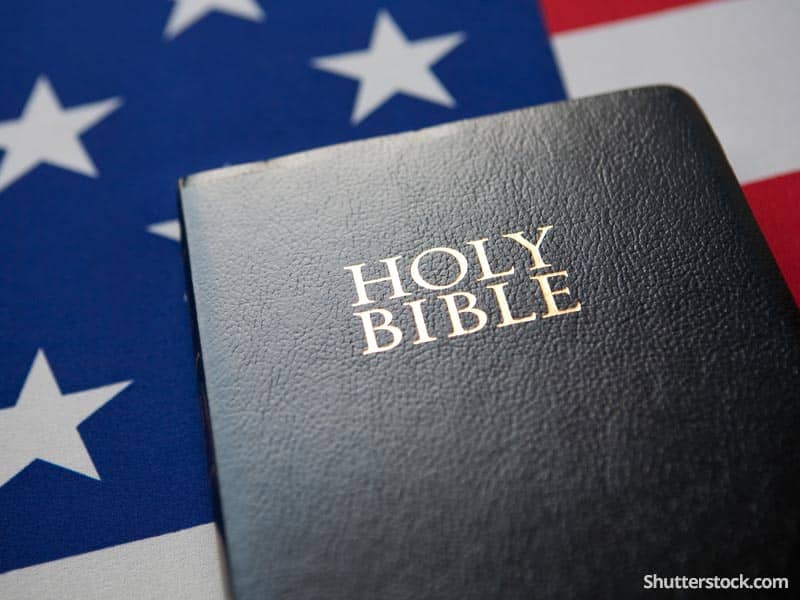I have written that Sen. Joe Lieberman did the country a great service by making it more acceptable for a political candidate to speak about his faith. In doing so, the Democratic vice-presidential nominee took the religion issue away from the Christian right, which had controlled discussions about faith and politics for too long. To his credit, Senator Lieberman has begun to relate his faith to issues such as the environment, care for the elderly, and hate crimes. But while both Vice President Al Gore and Texas Gov. George W. Bush also have spoken of their religion, neither has said much about what those commitments might mean in terms of their political beliefs.
For example, Governor Bush called Jesus his "favorite philosopher" and Vice-President Gore claimed he frequently asks, "What would Jesus do?" when confronting political questions. Does anyone wonder what Jesus might think of one of every five children remaining poor during the most prosperous time in the history of the richest nation on earth? Yet after both candidates raised the scandal of poverty in the midst of prosperity at their summer political conventions, neither has mentioned it since. Two days after The New York Times ran long articles on each of the candidate's religious history and views, The Washington Post ran a cover story on how the poor have been ignored in this election campaign, with both Bush and Gore appealing to middle class and swing voters.
Only in a black Dallas church did Al Gore recently remember to say that all our prosperity gives us the opportunity to "bring good news to the poor." But why is that only an issue in church? Apparently, it again falls to religious leaders to remind these politicians of the implications of their faith statements.
Fifty Christian leaders have just done that. During a recent gathering, the religious leaders challenged each candidate to tie their statements and professed commitments to an issue central to the Bible--how we treat the needy. Here is their open letter to the presidential candidates:
I'm writing on behalf of Call to Renewal's Christian Roundtable on Poverty. We appreciate that both of you have spoken strongly about the need for government partnerships with faith-based organizations in the struggle to overcome poverty in our nation. We are writing with something very specific to ask of you--your commitment to leadership in reducing childhood poverty.
The Christian Roundtable consists of leaders of Christian denominations and faith-based organizations from across the political and theological spectrum. Over the past three years, we have met five times. At our meeting in September, 48 leaders from 45 national church denominations and faith-based organizations from the wide range of American church life--Evangelical, Catholic, Mainline Protestants, black churches, and Pentecostals--demonstrated a real sense of collaboration showing that Christian leaders are now working together to overcome poverty.
As we talked and shared together about our efforts, we were especially aware of the continuing tragedy of children in poverty in America. At a time of unprecedented prosperity, in the richest nation in history, it should be morally unacceptable that 12 million of our children continue to be poor--one in six according to the new Census report, and still much higher for children of color. No other developed country has child poverty rates so painfully high.
We noted that at both party conventions, speakers pledged to "leave no child behind." And we recalled that each of you have spoken about your commitment to include poor families in this time of great prosperity. We're grateful, Governor Bush, for your pledge, "We will extend the promise of prosperity to every forgotten corner of this country." And, we're also thankful, Vice President Gore, for your promise, "Let's make sure that our prosperity enriches not just the few, but all working families."
So we are asking you now for leadership on the tragedy of child poverty in America. We invite both of you to make a pledge--that if elected President you will call the nation to focus our attention and energies on a significant reduction of child poverty. Specifically, we urge you to commit the nation to cutting the child poverty rate by half in five years.
We certainly do not ask or expect the government to do this by itself, but to call the entire nation to this great task. If a president can promise to put a man on the moon, a president could certainly decide to give our prosperity a purpose by concentrating the nation's attention and energy on our most vulnerable children.
Dramatically reducing child poverty will take creative and comprehensive public policies, along with a profound national resolve, rather than a laundry list of incremental policies. There are Republican ways and Democratic ways to cut child poverty by half, but neither will work without the moral and political energy that comes from a national commitment to a concrete goal.
And so we challenge you to set a moral goal of overcoming child poverty and then mobilize the nation behind it. We ask you to use the bully pulpit of the presidency to call upon all Americans to join together for this objective. As a nation we could adopt the principle that everyone does their share and everyone does what they do best. Many of our churches and ministries include childcare centers, after-school programs, family support services, welfare-to-work initiatives, and community economic development programs. We pledge to continue that work and even to expand our efforts in response to a national call.
As you fulfill your commitments to increase partnership between government and the faith community, we look forward to working with you. We believe that the goal of cutting child poverty by half in five years is ambitious, but entirely possible if there is the political will and public commitment.
We look forward to your response to this letter, and we will continue to lift you both in prayer, that God will direct and guide you as you seek the office of President.
Blessings, Jim Wallis

